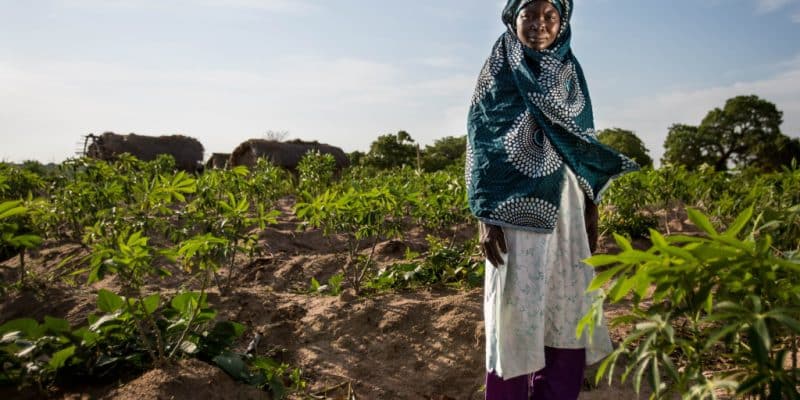While they represent more than 50% of the population in Africa, women are on the front line of sustainable development, particularly in terms of climate risks and unequal access to natural resources. Faced with this situation, coupled with low digital inclusion, green solutions are multiplying to integrate African women into the game of ecological transition.
“For an inclusive digital world: innovation and technologies for gender equality”. This is the theme of the 38th edition of International Women’s Day, which is celebrated on 8 March 2023. According to the Global System for Mobile Communications (GSMA) Mobile Gender Gap 2021 report, 374 million women do not have a mobile phone, 97 million of whom are in Africa. On the continent, this digital divide is accompanied by multiple challenges, particularly environmental ones. Indeed, African women are confronted daily with gender inequalities related to access to water resources.
This is particularly the case in Tunisia, where the French Development Agency (AFD) reveals in its book “Water, a promise of emancipation” that many Tunisian women are confronted with harassment and sexual aggression on the way to standpipes. In addition, climatic hazards such as floods and prolonged droughts are decimating the livelihoods of people in East Africa, particularly in Mozambique, which is regularly hit by cyclones.
In this country, where women make up about 20 million of the population, or more than half of the national population according to the World Bank, women are not always taken into account in climate resilience policies, starting with early warning systems that are often not accompanied by the distribution of mobile phones to rural women.
Yet women in Africa have shown intuition and innovation in shaping traditional solutions that can be effective for soil and livestock health. The advent of the Great Green Wall (GGW) project has further strengthened the role of women in the fight against desert encroachment, particularly through their physical efforts in reforestation activities.
Increasing women’s digital connectivity would not only empower them as stated in the UN Sustainable Development Goal (SDG) 5, but would also contribute to accelerating the ecological transition on the continent. Initiatives have emerged in recent years to integrate them into sustainable projects.
West African women in the green economy
From Senegal to Ivory Coast and Togo, women’s talent stands out in various environmental fields, particularly in West Africa. It is in this context that the L’Oréal Foundation and the United Nations Educational, Scientific and Cultural Organisation (UNESCO) recently rewarded twenty women scientists as part of the “Young Sub-Saharan African Talent for Women in Science” prize. Among them was Nigerian researcher Iveren Abiem. She was awarded the prize for her project on ‘carbon sequestration in the Afromontane forest’ in Plateau State. Farida Boube Dobi from Niger also won for her initiative on sovereign water management in Niamey, a resource that is essential for irrigation in an arid climate.
Read also-AFRICA: 20 women scientists awarded for their sustainable projects
At the same time, the Indian non-governmental organisation (NGO) Barefoot College International (BCI) and the Senegalese subsidiary of the Emirati group DP World, which specialises in logistics solutions, are continuing their training programme in Senegal called “Solar Mamas“. Every four months, the institution trains about twenty women from the village Toubab Dialaw, south of the capital Dakar, in the installation of autonomous solar systems.
Benoit-Ivan Wansi






